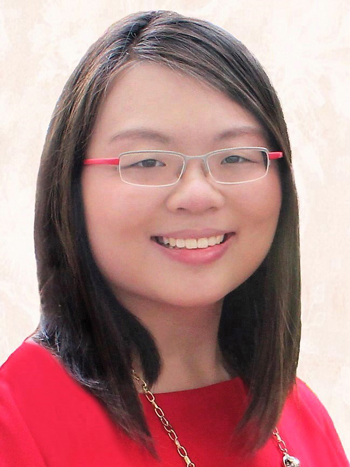Dr Sarah Shi Hui Wong is a Lecturer of Psychology (Social Sciences) at Yale-NUS College. She earned her Ph.D. in Psychology from the National University of Singapore (NUS), after attaining a MA (with Distinction) in Music Psychology in Education from the University of Sheffield, and a B.Soc.Sci. (Hons.) degree in Psychology from NUS. Concurrently, she holds a Licentiate Diploma (LTCL) with Distinction in Piano Performance from Trinity College London, a Licentiate Diploma (LLCM) with Distinction (Approved, Upper Level) in Piano Duet Performance from the London College of Music, and a Diploma of The Associated Board of the Royal Schools of Music (DipABRSM) in Violin Music Performance.
Dr Wong’s research bridges the fields of cognitive and educational psychology to develop, test, and translate interventions that improve higher order learning. In particular, her recent work examines how people can strategically learn from deliberate errors to flourish from failure.
Her research has been published in journals such as Educational Psychologist, Educational Psychology Review, Journal of Educational Psychology, and Journal of Experimental Psychology: General. She has received the American Psychological Association (APA) Paul R. Pintrich Outstanding Dissertation Award, Association for Psychological Science (APS) Student Research Award, and Wang Gungwu Medal and Prize for Best Ph.D. Thesis in the Social Sciences and Humanities.
Poised at the intersection of cognitive and educational psychology, Dr Wong’s research uncovers effective and inexpensive techniques to improve higher order learning. Her current work focuses on how errors can be best positioned to enhance learning. Notably, her pioneering research on the “derring effect” has demonstrated how people can strategically learn from errors by deliberately committing and correcting them. More broadly, her ambition is to discover how we can (re)design education to achieve its ultimate goal—to empower people with the skills to learn deeply, thereby promoting human flourishing.
Research Specialisations
- Deliberate errors
- Learning from errors
- Higher order learning
- Cognitive psychology in education
Wong, S. S. H. (2025). Learning by teaching with deliberate errors promotes argumentative reasoning. Journal of Educational Psychology. Advance online publication. https://doi.org/10.1037/edu0000934
Lim, S. W. H., Wong, S. S. H., & Visessuvanapoom, P. (2024). Durable benefits of learning-by-teaching for research question generation performance: A field experiment. The Journal of Experimental Education. Advance online publication. https://doi.org/10.1080/00220973.2024.2364625
Yap, J. B. K., & Wong, S. S. H. (2024). Deliberately making and correcting errors in mathematical problem-solving practice improves procedural transfer to more complex problems. Journal of Educational Psychology, 116(7), 1112–1128. https://doi.org/10.1037/edu0000850
Wong, S. S. H., Lim, K. Y. L., & Lim, S. W. H. (2023). To ask better questions, teach: Learning-by-teaching enhances research question generation more than retrieval practice and concept-mapping. Journal of Educational Psychology, 115(6), 798–812. https://doi.org/10.1037/edu0000802
Wong, S. S. H., & Lim, S. W. H. (2023). Take notes, not photos: Mind-wandering mediates the impact of note-taking strategies on video-recorded lecture learning performance. Journal of Experimental Psychology: Applied, 29(1), 124–135. https://doi.org/10.1037/xap0000375
Wong, S. S. H. (2023). Deliberate erring improves far transfer of learning more than errorless elaboration and spotting and correcting others’ errors. Educational Psychology Review, 35(1), Article 16. https://doi.org/10.1007/s10648-023-09739-z
Wong, S. S. H., & Lim, S. W. H. (2022). Deliberate errors promote meaningful learning. Journal of Educational Psychology, 114(8), 1817–1831. https://doi.org/10.1037/edu0000720
Wong, S. S. H., & Lim, S. W. H. (2022). The derring effect: Deliberate errors enhance learning. Journal of Experimental Psychology: General, 151(1), 25–40. https://doi.org/10.1037/xge0001072
Wong, S. S. H., & Lim, S. W. H. (2022). A mind-wandering account of the testing effect: Does context variation matter? Psychonomic Bulletin & Review, 29(1), 220–229. https://doi.org/10.3758/s13423-021-01989-8
Lim, K. Y. L., Wong, S. S. H., & Lim, S. W. H. (2021). The “silent teacher”: Learning by teaching via writing a verbatim teaching script. Applied Cognitive Psychology, 35(6), 1492–1501. https://doi.org/10.1002/acp.3881
Wong, S. S. H., Chen, S., & Lim, S. W. H. (2021). Learning melodic musical intervals: To block or to interleave? Psychology of Music, 49(4), 1027–1046. https://doi.org/10.1177/0305735620922595
Wong, S. S. H., Low, A. C. M., Kang, S. H. K., & Lim, S. W. H. (2020). Learning music composers’ styles: To block or to interleave? Journal of Research in Music Education, 68(2), 156–174. https://doi.org/10.1177/0022429420908312
Wong, S. S. H., & Lim, S. W. H. (2019). From JOLs to JOLs+: Directing learners’ attention in retrieval practice to boost integrative argumentation. Journal of Experimental Psychology: Applied, 25(4), 543–557. https://doi.org/10.1037/xap0000225
Wong, S. S. H., Ng, G. J. P., Tempel, T., & Lim, S. W. H. (2019). Retrieval practice enhances analogical problem solving. Journal of Experimental Education, 87(1), 128–138. https://doi.org/10.1080/00220973.2017.1409185
Wong, S. S. H., & Lim, S. W. H. (2019). Prevention–permission–promotion: A review of approaches to errors in learning. Educational Psychologist, 54(1), 1–19. https://doi.org/10.1080/00461520.2018.1501693
Wong, S. S. H., & Lim, S. W. H. (2017). Mental imagery boosts music compositional creativity. PLoS ONE, 12(3), Article e0174009. https://doi.org/10.1371/journal.pone.0174009
Wong, S. S. H., Lim, S. W. H., & Quinlan, K. M. (2016). Integrity in and beyond contemporary higher education: What does it mean to university students? Frontiers in Psychology: Educational Psychology, 7, Article 1094. https://doi.org/10.3389/fpsyg.2016.01094


